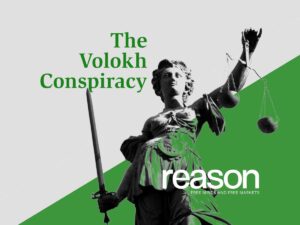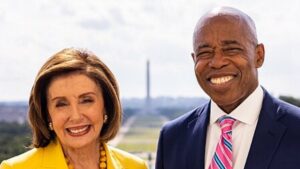[ad_1]

By Lauren Jessop (The Middle Sq.)
(The Middle Sq.) – Free speech suppression on faculty campuses and social media censorship usually spur debates over how far the First Modification ought to go to guard Individuals’ rights to specific their opinions – and who must be entrusted with these choices.
About 53% of Individuals imagine the First Modification goes too far within the rights it protects, in line with a new ballot by the nonprofit Basis for Particular person Rights and Expression, or FIRE.
The ballot, carried out July 5-10, is the most recent installment within the Nationwide Speech Index, a quarterly survey designed by FIRE and the Polarization Analysis Lab at Dartmouth Faculty to gauge public opinion on freedom of speech.
RELATED: Former Secret Service Chief Wished To Destroy Cocaine Proof
The ten-question survey consists of 5 everlasting questions to trace help totally free speech and the First Modification over time and 5 rotating inquiries to seize public opinion about topical and newsworthy speech-related points.
“Evidently, one out of each two Individuals needs they’d fewer civil liberties,” mentioned FIRE’s Chief Analysis Advisor Sean Stevens. “A lot of them reject the suitable to assemble, to have a free press, and to petition the federal government. This can be a dictator’s fantasy.”
Moreover, the report states that 69% of these surveyed imagine the nation is on the improper observe relating to free speech. Solely 5% imagine their rights are “fully” safe, and 12% “by no means” safe.
Roughly 65% of respondents have some degree of belief within the authorities to pretty determine on what speech is taken into account threatening or indecent. Nevertheless, solely 32% mentioned they had been “by no means” comfy with the federal government limiting the free speech of pro-Hamas protesters.
“Not solely do many Individuals wish to take a machete to the First Modification, nevertheless it’s unclear whether or not they perceive its bounds,” mentioned FIRE’s press launch. It additionally states {that a} plurality of respondents mentioned this spring’s campus pro-Palestinian protests ought to have been allowed to proceed on free speech grounds.
The group famous that whereas many protests had been “lawful,” some included “tent encampments, vandalism, and the occupation of buildings” – which aren’t justifiably protectable “within the title of free speech.”
“Individuals have little tolerance for sure types of protected speech and a whole lot of tolerance for unprotected conduct, when it must be the opposite manner round,” Stevens mentioned. “This ballot reveals that the state of free speech in America is dire.”
RELATED: Harris, new VP face criticism for dealing with of crime
Pointing to earlier surveys, Stevens informed The Middle Sq. that many Individuals have little to no belief within the authorities to control free speech, however on the identical time, different knowledge counsel many are able to censor views they don’t like. They need somebody to do it, however don’t belief the federal government or social media corporations to do it pretty, he mentioned.
Stevens highlighted one encouraging outcome: there appears to be uncommon bipartisan settlement between Democrats and Republicans — 61% and 52%, respectively — that they don’t seem to be comfy with the federal government regulating the speech of pro-Hamas protesters.
“I do know what’s being mentioned most likely offends lots of people,” he mentioned. “However that’s a robust free speech stance there.”
Nevertheless, half of Democrats and solely one-fifth of Republicans suppose America is heading in the right direction in terms of free speech normally.
Different survey work centered on the encampment protests and the way campus administrations addressed them. Stevens mentioned the outcomes present elevated concern over the state of free speech amongst liberals, progressives and folks on the left in comparison with six months in the past.
“There’s extra consciousness now that their ox is being gored and so they see how the requires censorship might be wielded towards them simply as simply,” he mentioned.
Different findings present the proportion of respondents who’re “very” or “considerably frightened about being fired over complaints about their speech fell from 28% in April to twenty% in July. They observe that the survey was carried out previous to the assassination try of former President Donald Trump.
The quantity of people that self-censor “pretty” or “very” usually additionally decreased to 23% from 27%.
Syndicated with permission from The Middle Sq..
[ad_2]





